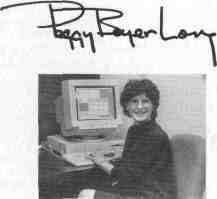|
EDITOR'S NOTEBOOK
'The bribe confers status on givers and takers' by Peggy Boyer Long —— Chicago alderman takes $500 from a waste hauler while serving a rookie term in the legislature. A state agency manager takes $16,000 stuffed in envelopes from a politically connected contractor, Management Services of Illinois Inc. Another state worker accepts four tickets to a St. Louis Cardinals game from a bank that has a contract with his agency. Just about anybody who is anybody in state government gets a gift box stocked with lobster tails. And so many officials take free Bulls tickets there can't be many left for fans who pay their own way. What gives? Or rather, who gives and who takes? And why? Of course, we make a distinction between a bribe that comes with a clear-cut quid pro quo and the cornucopia of gifts and favors aimed at merely generating goodwill in Chicago and Springfield. But should we? Certainly, the underlying motivation is similar, if not the same, though one may be crudely illegal and the other socially acceptable. In each case, the giver's purpose is to gain favor or influence, and that of the taker to provide access, or to appear to do so. In fact, it's the essential nature of the transaction, and of the relationship between the giver and the taker, that most intrigues Illinois Issues' contributing editor James Krohe Jr. In an essay that begins on page 30, he argues that bribery is a cultural construct, and that such gift-giving constitutes a form of tribute. "The moralist errs in assuming that greed animates pols, when it is often vanity," he argues. "Paying a bribe is a way to pay respect. This is seldom credited as part of the ritual. The bribe confers status on givers and takers — the first because they have it to give, the second because they (or at least their power) merit its reward." There's good reason polite opinion still considers bribery bad, Krohe argues. "Ultimately, bribery remains a form of theft, as public officials sell something — access to public money, access to public power — that doesn't belong to them to sell." But, he adds, "The typical Illinois civil servant in particular is incomparably more honest than she used to be. One reason Springfield finds the MSI case so fascinating is that it offers a glimpse into a past that today seems both romantic and impossibly crude — like visiting New Salem." The illegal bribe, as Krohe writes, is less routine, but legal bribery flourishes. The seeds may be the campaign promise and the campaign contribution. And those little and not-so-little tokens from contractors and lobbyists. But they take root in the ego. And in the feeling of entitlement on the part of some who hold positions of public power. 4 / February 1998 Illinois Issues
|

